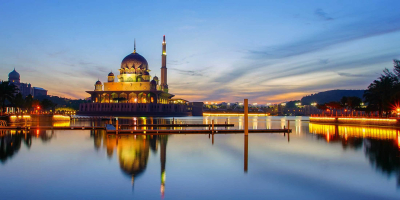Top 8 Bruneian Culture, Customs, and Etiquette
Brunei culture in general also has many similarities with the culture of countries in Southeast Asia. However, due to the remote geographical and religious ... read more...characteristics, Brunei also has many differences from other cultures in the region. Here's your guide to Bruneian culture, customs, and etiquette!
-
One of the Bruneian culture, customs, and etiquette that you should remember before visiting Brunei is meeting. Because Brunei was formerly a part of Malaysia, the meeting and greeting customs of the two countries are similar. The common greeting depends upon the ethnic origin and the age of the person. In general, many men you meet will have adopted the western concept of shaking hands, although this is not always the case with older Bruneians or with women.
Ethnic Malay men shake hands with one another, but men and women do not traditionally shake hands. Younger Bruneians may shake hands with foreign women or they may merely bow their heads in greeting. It is considered respectful to bow your head when someone is senior to yourself in age or position. It is considered disrespectful and rude to stare into another person's eyes, particularly those of a person who is senior to you in age or status.

business.hsbc.com 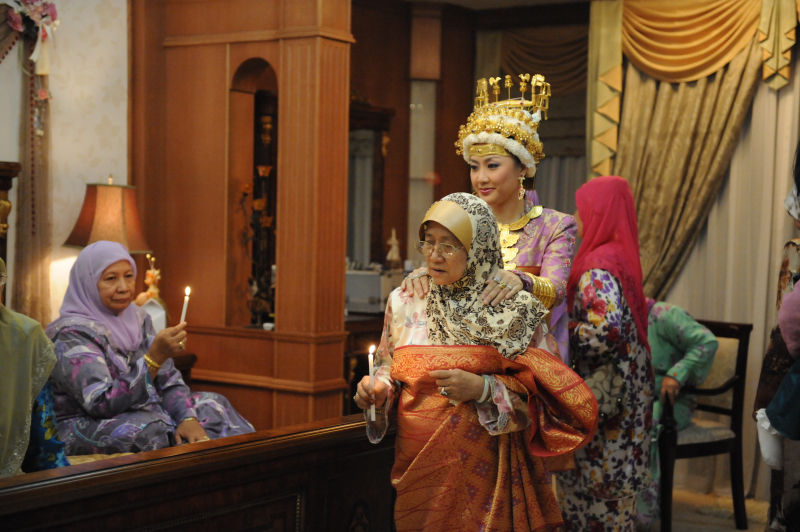
en.wikipedia.org -
In Brunei, if invited to someone's home for dinner, the guest should bring gifts such as good-quality chocolates or fruit. If the host family has children, you do not give toy dogs to them. Because in Bruneian custom, they are not allowed to eat pork, so by understanding these, you can avoid cultural conflicts. If you are planning to give food, you need to ensure that there is no gelatine or any other ingredient which is not ‘halal’.
Also, ensure that food wrappings do not include any images which might be Islamically offensive. Avoid white wrapping paper as it symbolizes death and mourning. Offer gifts with the right hand only or both hands if the item is large. Gifts are generally not opened in front of the guest unless requested. It is not common to give gifts in a business setting as they are generally seen as bribes. However, sometimes after the first meeting, simple gifts are exchanged.
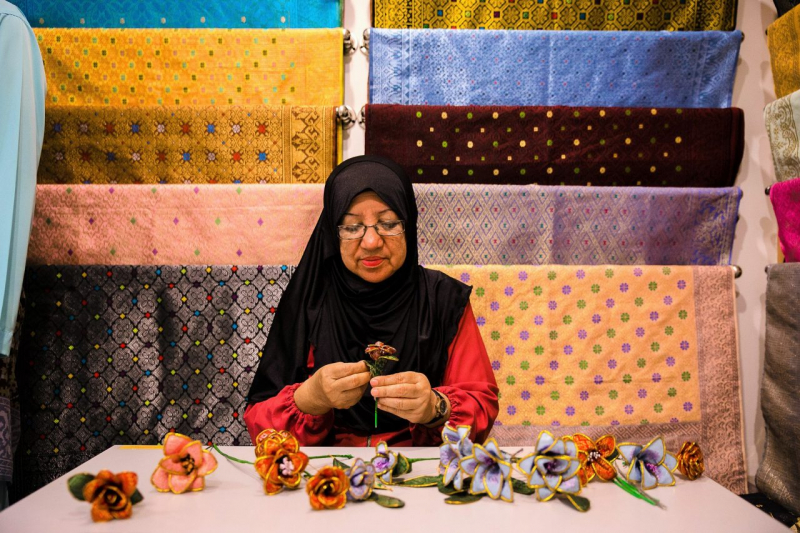
bizbrunei.com 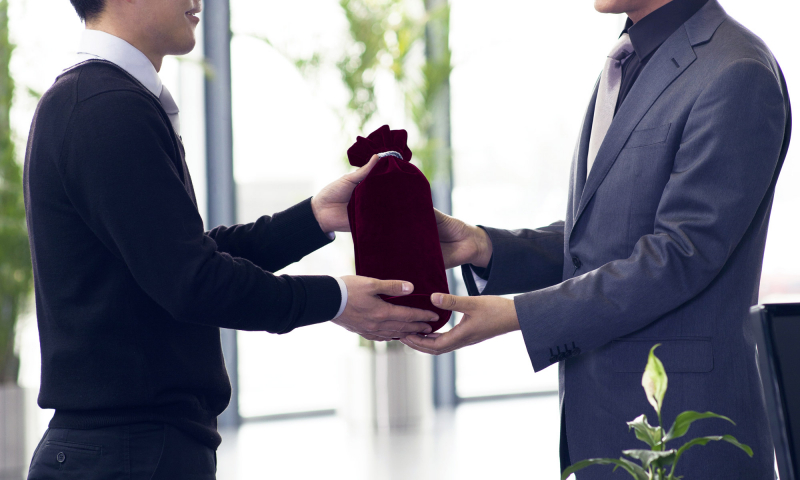
ideas.ted.com -
For the most part, Bruneians do not invite foreigners into their homes. If you are invited to a Bruneian home, consider it a great honor and testament to your personal relationship. And dining is among the Bruneian culture, customs, and etiquette that you should concern about. Punctuality is not strictly adhered to. You may arrive a little late without causing offense. Don't forget that shoes are generally removed before entering a house and you must greet the eldest person first. If you don't know where to sit, wait to be told.
It is considered good manners to accept an offer of food or a beverage. Turning down hospitality may be viewed as a personal rejection. In Brunei, you should wait to be invited to eat before starting. Food is often served buffet style or on a revolving tray in the center of the table. The guest of honor may be served first or the eldest person may. If you eat with your left hand, it is considered unclean. So, eat or pass food with your right hand only. However, many Malays eat with their fingers. Alternatively, they may serve cutlery for foreign guests, usually a fork and a tablespoon. If passing a plate that is heavy, you may use your left hand to support your right wrist. When you are finished eating, place your fork facing downward on your plate with your spoon, also facing downward, crossed over the fork.
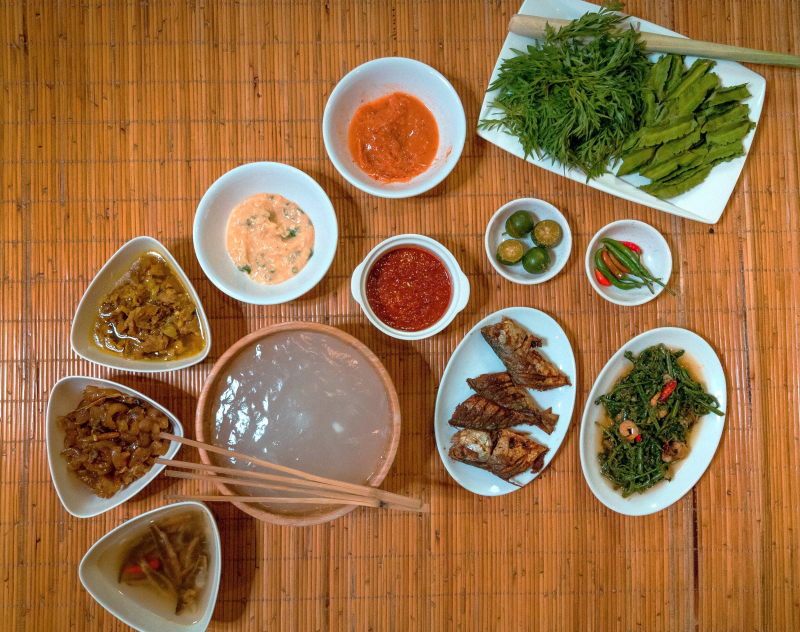
monngonthegioi 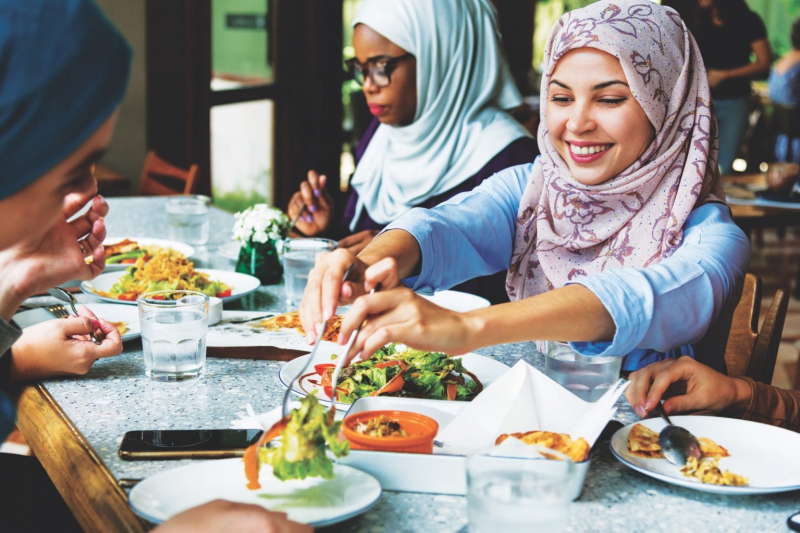
tripadvisor.com -
Ramadan is the Bruneian culture, customs, and etiquette that you might not skip. It is the ninth month of the Muslim lunar calendar. In a country with a large Muslim population like Brunei (75% of the population), the month of Ramadhan is considered the biggest and holiest holiday in this country. The time of the month of Ramadhan is decided by the powerful astrologers in the country, each year, the time of the celebration will be different. During the month of Ramadhan, Muslims in good health will have to fast from morning to evening, namely from sunrise to sunset (applicable during the day). In this month, Muslims will have to get up to eat a meal before dawn called Suhoor, after sunset, they will eat dinner to end the fast of the day called iftar. After Iftar, they will again gather in churches and pray.
In addition to the special religious significance, the month of Ramadhan is also an opportunity for children and grandchildren, near and far, to gather together, gather, and have dinner together after a day of fasting. Dinner is usually prepared with fruits and cakes, limited to meat, and fresh foods during the time of Ramadhan.
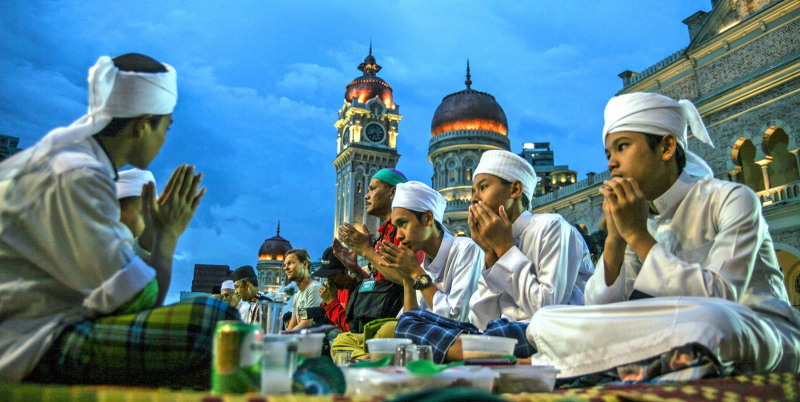
wtour.vn 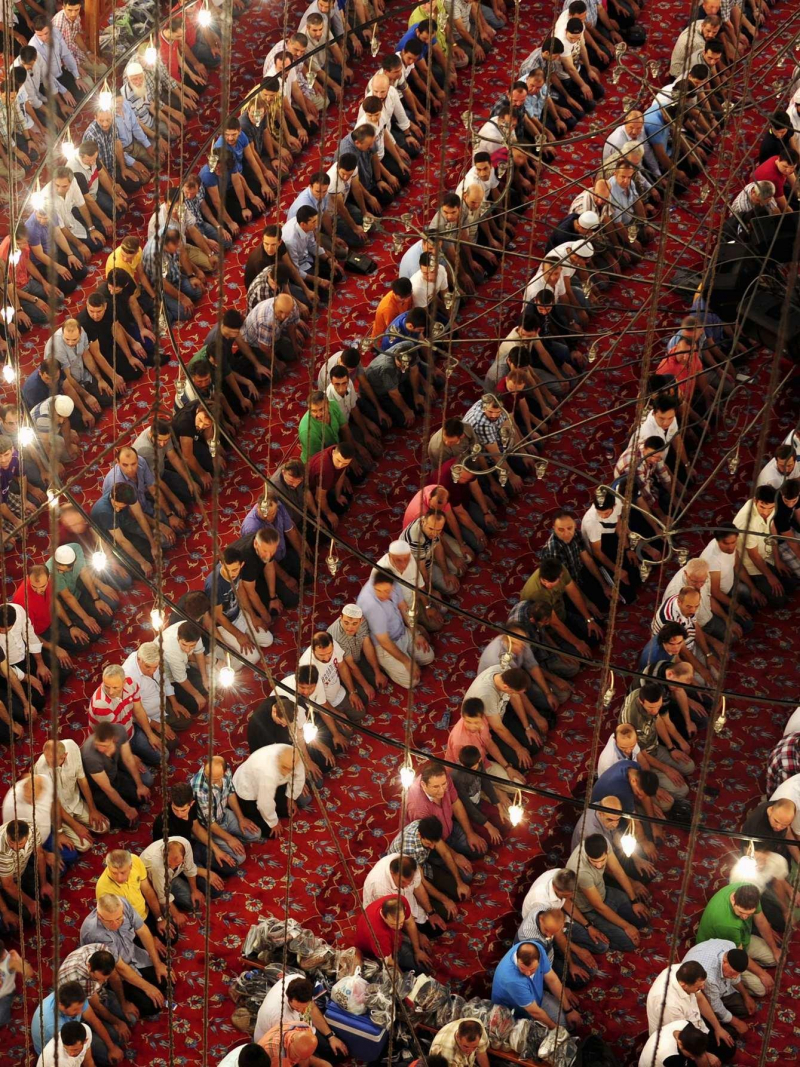
vntravellive.com -
Hari Raya Aidilfitri is one of the biggest traditional festivals of the year in Brunei. The Hari Raya Aidilfitri festival takes place immediately after Ramadan as an occasion to celebrate the merits of a month of fasting. This festival is likened to the Lunar New Year of the countries according to the lunar calendar and usually takes place within 4 days. On the first day of the traditional festival of Hari Raya Aidilfitri, family members will reunite and then visit grandparents, and parents, talk, eat and chat happily.
Along with the joy of Hari Raya Aidilfitri, the Istana Nurul Iman palace is also open for two days to welcome government members and citizens. On this second day, the people of Brunei will wear the best costumes to visit the Istana Nurul palace, everyone is eager and happy to see members of the royal family. Because according to them, they receive gifts and shake hands with the King and Queen, they will be lucky all year.
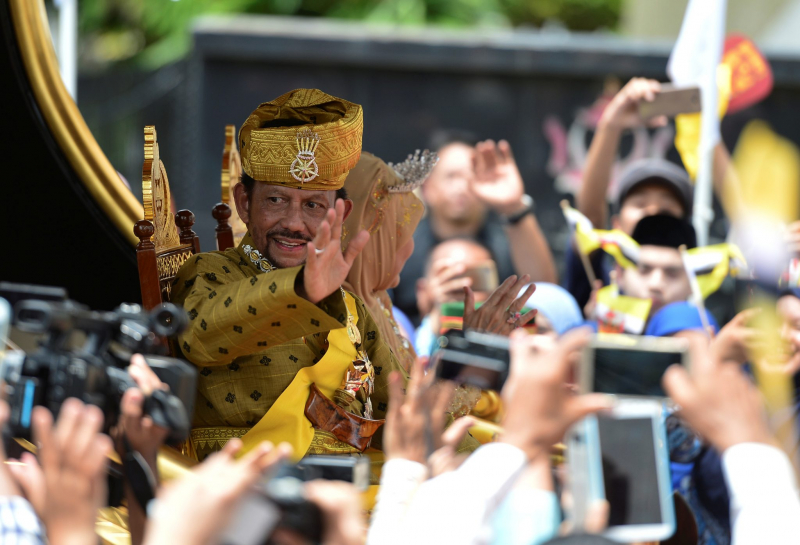
eastasiaforum.org 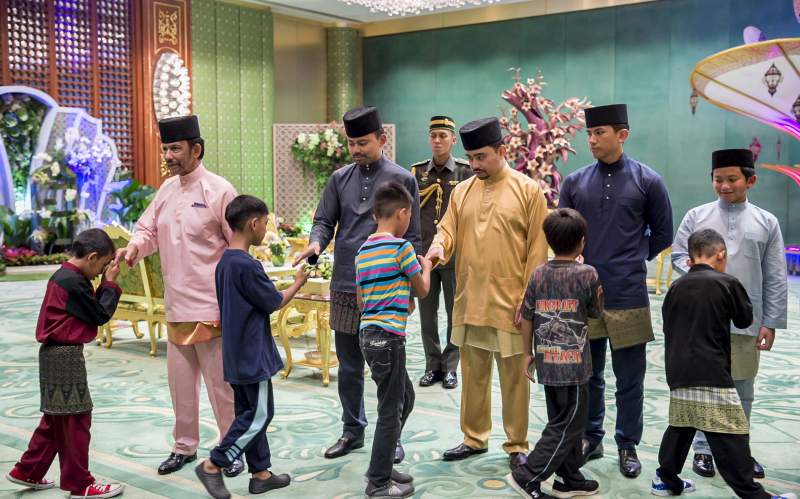
thescoop.co -
Bruneians believed that the soul of the departed remains wandering on Earth during the 40-day period, coming back home, visiting places the departed has lived in as well as their fresh grave. The soul also completes the journey through the Aerial toll house finally leaving this world. Therefore, for Bruneians, the 40th Day after death is a traditional memorial service, family gathering, ceremony, and ritual in memory of the departed on the 40th day after his or her death. This is a way to protect the soul of the departed as they finalize their place in the afterlife.
The observation of the 40th day after death occurs in Islam and the Eastern Orthodox tradition. The ritual represents spiritual intercession on the part of the dead, who are believed to collectively await the Day of Judgment. Thus, these rituals may be conducted for an individual, like the commemoration of the 40th day after death, or for all dead souls.
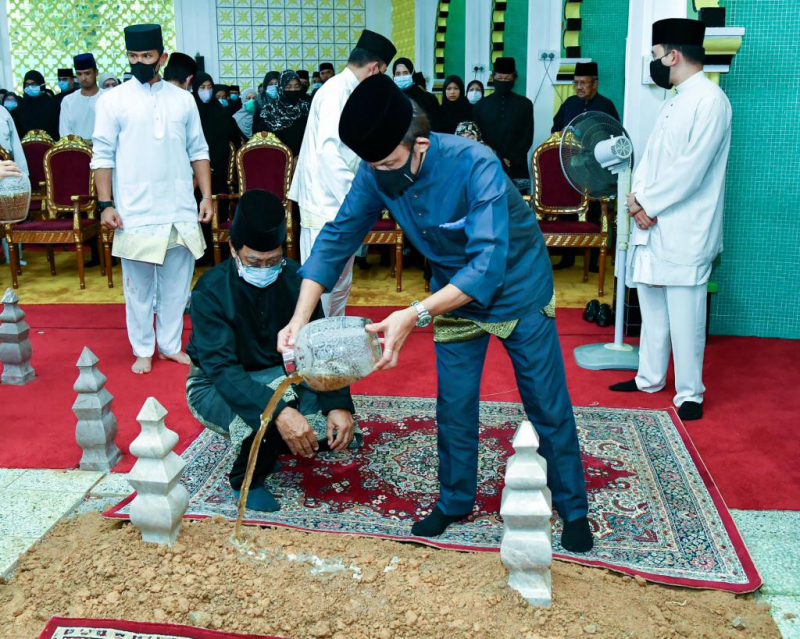
afamily.vn 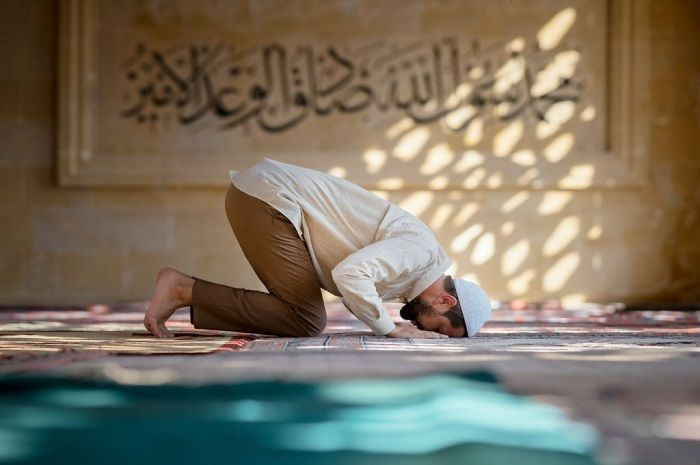
catatanbunda.id -
In Brunei, the total wedding ceremony takes place in 12 days with many complicated procedures and ceremonies, especially for families of noble or royal lineage. The night before the official wedding day, family and friends are invited to congratulate. Most of the guests will bring colored rice flour and aromatic oils for family members to rub into their palms. This ritual is believed to bring blessings to the couple. In addition, they also boil a pot of water with pandan leaves and flower petals, place it outside the big room for guests to dip their hands in, and sprinkle it on the hands of the bride and groom to pray for them to be happy for life.
On the official wedding day, all family and friends eagerly gathered at the largest mosque in Southeast Asia named Jam Assr Hassail Bolikah - which is estimated to be decorated with about five tons of gold. This is the place where the bride and groom are legally recognized for their marriage. Before entering the ceremony, the couple must wash with a kind of local leaf water. The costumes of the bride and groom are plated with gold and studded with diamonds. The wedding party was lavishly presented in the cathedral hall in the form of buffet food, with the main dish being curry.
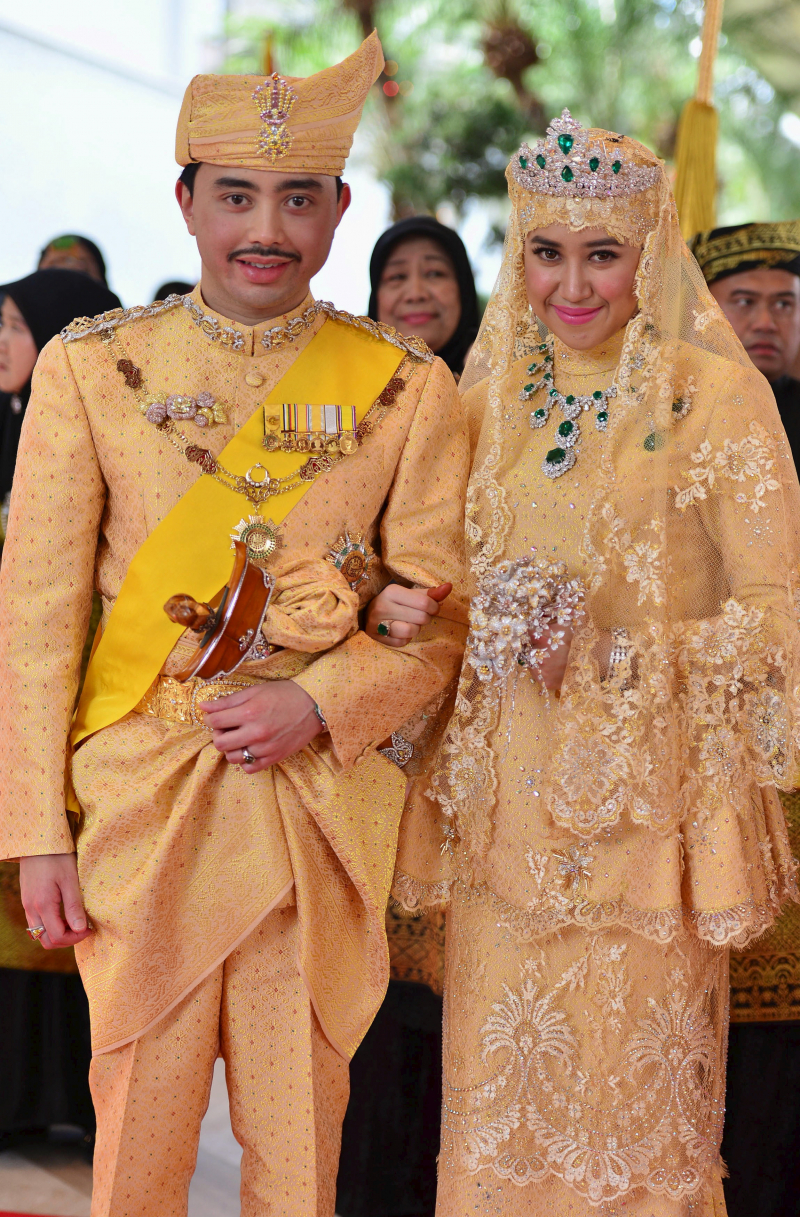
time.com 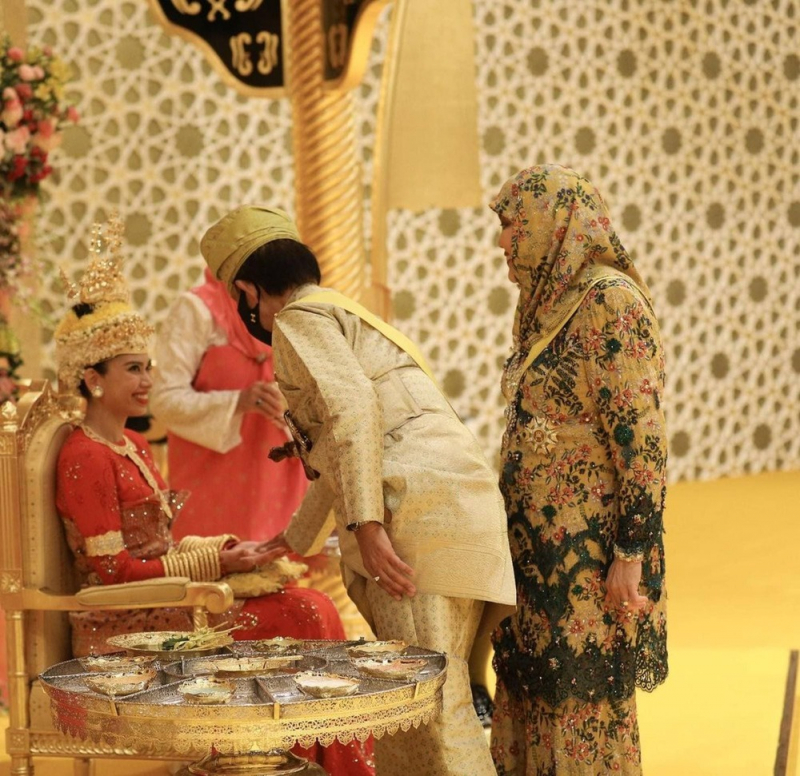
danviet.vn -
In Brunei's culture, it’s not allowed for men and women who aren’t blooded relatives or married, to be alone together. This is the same in some countries in the Middle East, including Saudi Arabia. This only applies to Bruneian Muslims, but punishments can sometimes be harsh especially when authorities suspect adultery. And committing adultery is a big no-no. It is considered illegal in Brunei and can carry an archaic punishment such as stoning to death. This is unlikely to affect tourists unless it involves a Bruneian or a Muslim.
Moreover, in Brunei, unmarried couples are not allowed in a hotel room due to adultery laws. If you’re not married, you need to get separate rooms. This still applies if you’re in a long-term relationship and haven’t tied the knot. The law can be murky and exceptions are sometimes made for foreign tourists. Call the hotel and double-check before booking a room if you’re in this situation.
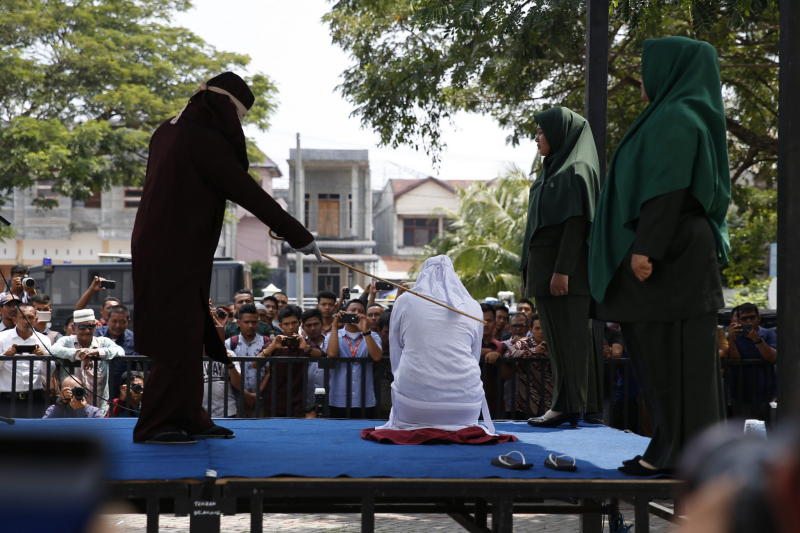
southeastasiaglobe.com 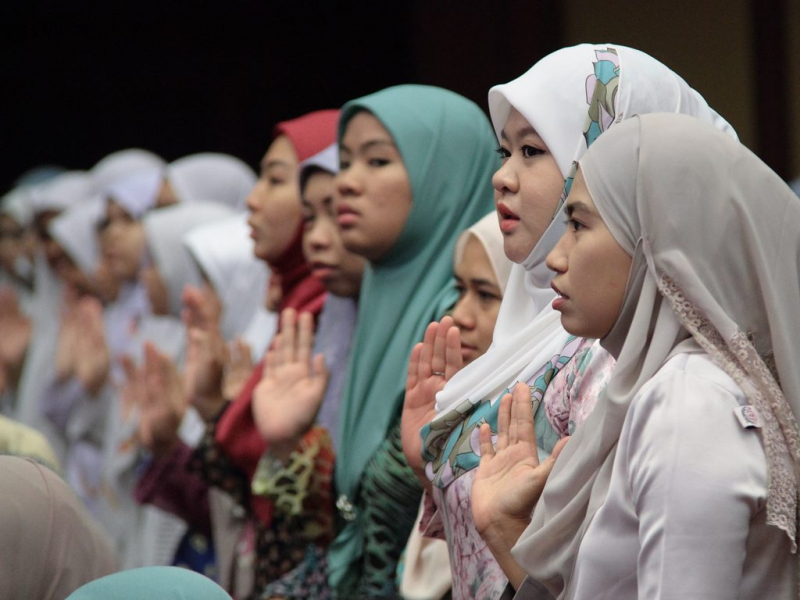
thescoop.co




























